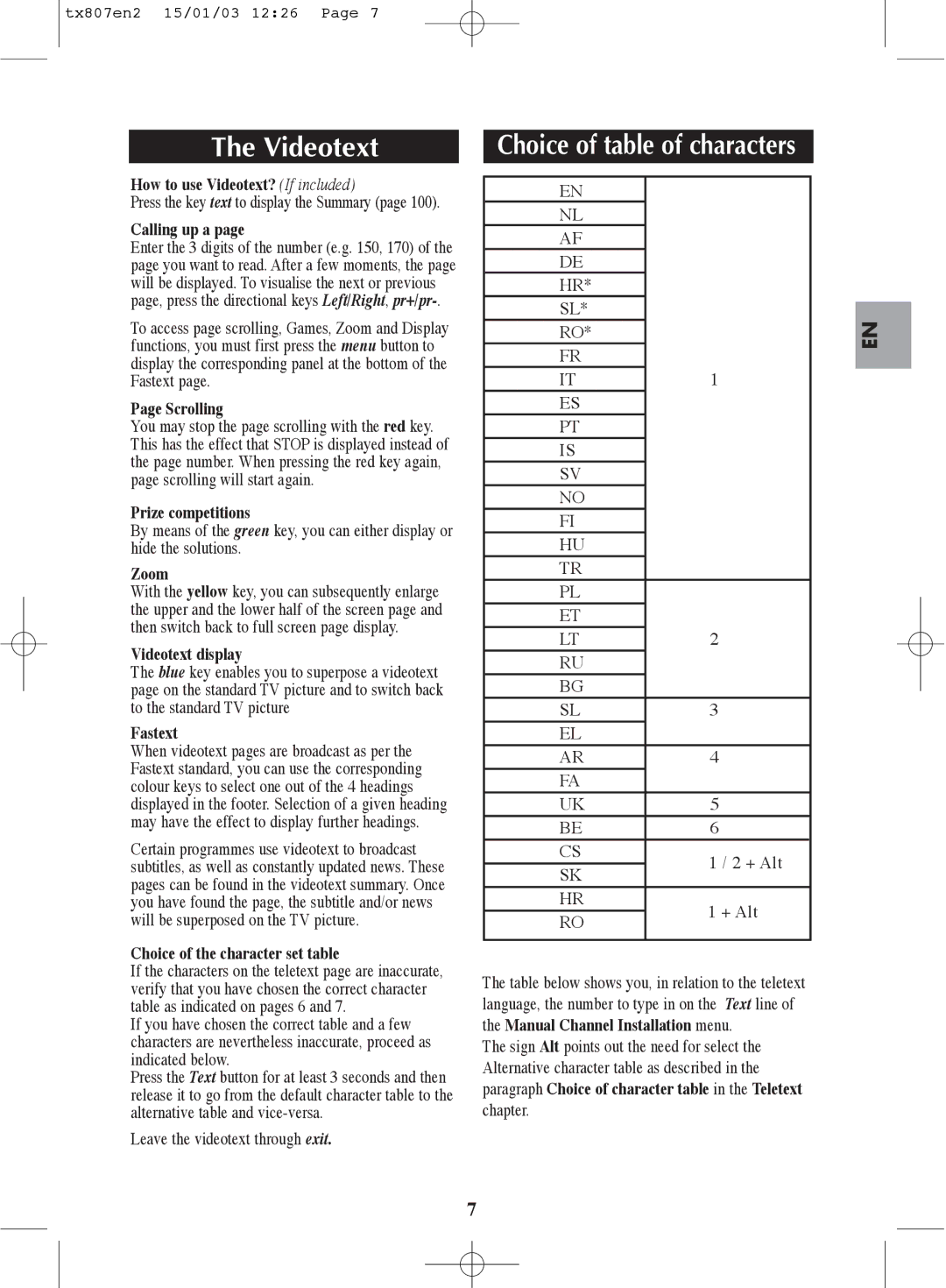
tx807en2 15/01/03 12:26 Page 7
The Videotext
How to use Videotext? (If included)
Press the key text to display the Summary (page 100).
Calling up a page
Enter the 3 digits of the number (e.g. 150, 170) of the page you want to read. After a few moments, the page will be displayed. To visualise the next or previous page, press the directional keys Left/Right,
To access page scrolling, Games, Zoom and Display functions, you must first press the menu button to display the corresponding panel at the bottom of the Fastext page.
Page Scrolling
You may stop the page scrolling with the red key. This has the effect that STOP is displayed instead of the page number. When pressing the red key again, page scrolling will start again.
Prize competitions
By means of the green key, you can either display or hide the solutions.
Zoom
With the yellow key, you can subsequently enlarge the upper and the lower half of the screen page and then switch back to full screen page display.
Videotext display
The blue key enables you to superpose a videotext page on the standard TV picture and to switch back to the standard TV picture
Fastext
When videotext pages are broadcast as per the Fastext standard, you can use the corresponding colour keys to select one out of the 4 headings displayed in the footer. Selection of a given heading may have the effect to display further headings.
Certain programmes use videotext to broadcast subtitles, as well as constantly updated news. These pages can be found in the videotext summary. Once you have found the page, the subtitle and/or news will be superposed on the TV picture.
Choice of the character set table
If the characters on the teletext page are inaccurate, verify that you have chosen the correct character table as indicated on pages 6 and 7.
If you have chosen the correct table and a few characters are nevertheless inaccurate, proceed as indicated below.
Press the Text button for at least 3 seconds and then release it to go from the default character table to the alternative table and
Leave the videotext through exit.
Choice of table of characters
EN |
| |
NL |
| |
AF |
| |
DE |
| |
HR* |
| |
SL* |
| |
RO* |
| |
FR |
| |
IT | 1 | |
ES |
| |
PT |
| |
IS |
| |
SV |
| |
NO |
| |
FI |
| |
HU |
| |
TR |
| |
PL |
| |
ET |
| |
LT | 2 | |
RU |
| |
BG |
| |
SL | 3 | |
EL |
| |
AR | 4 | |
FA |
| |
UK | 5 | |
BE | 6 | |
CS | 1 / 2 + Alt | |
SK | ||
| ||
HR | 1 + Alt | |
RO | ||
| ||
|
|
The table below shows you, in relation to the teletext language, the number to type in on the Text line of
the Manual Channel Installation menu.
The sign Alt points out the need for select the Alternative character table as described in the
paragraph Choice of character table in the Teletext
chapter.
EN
7
